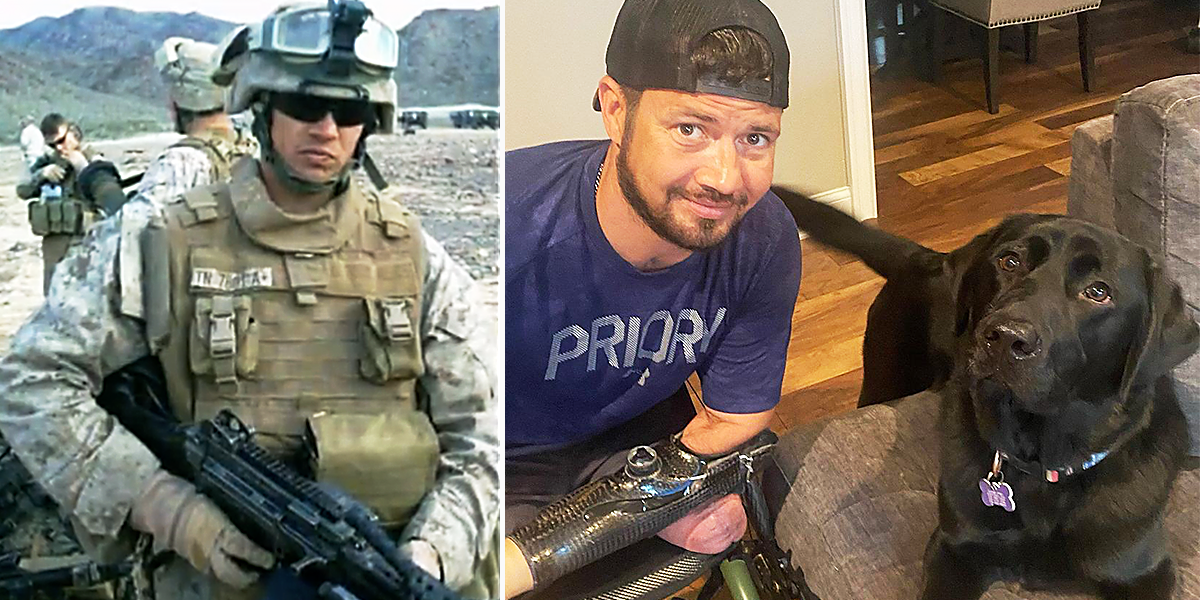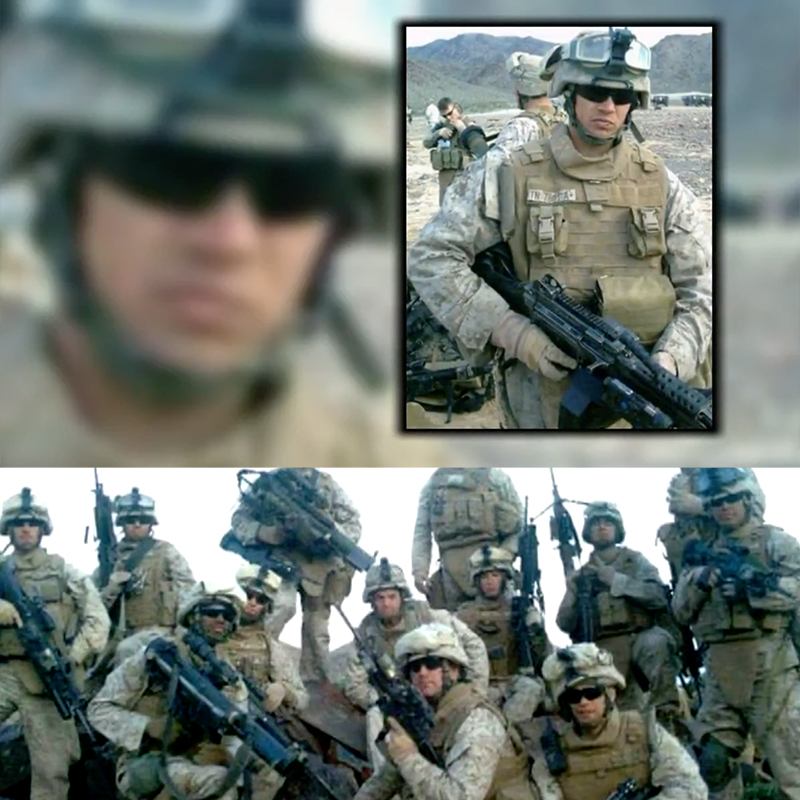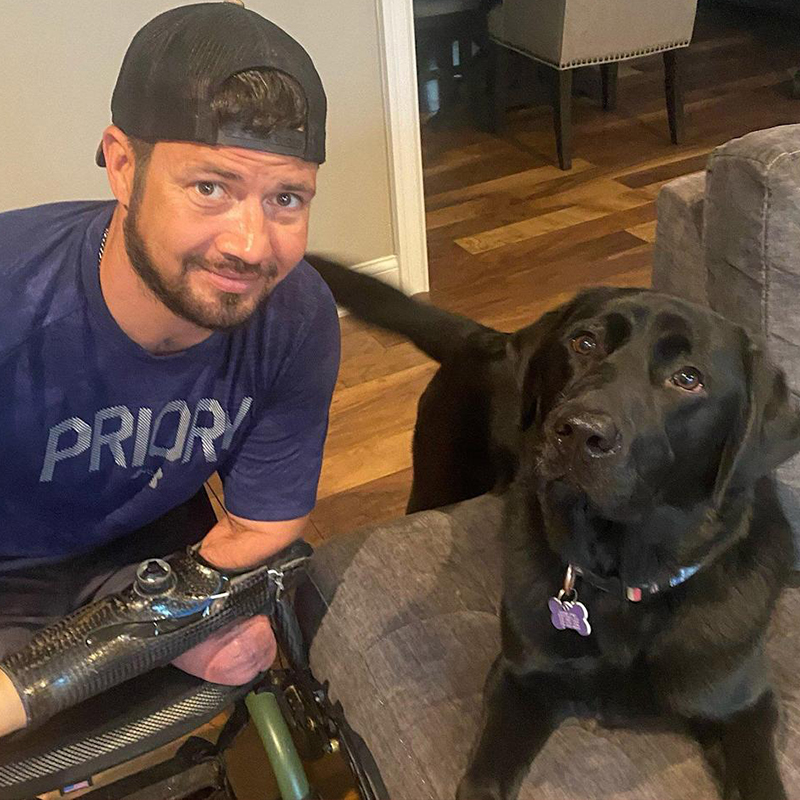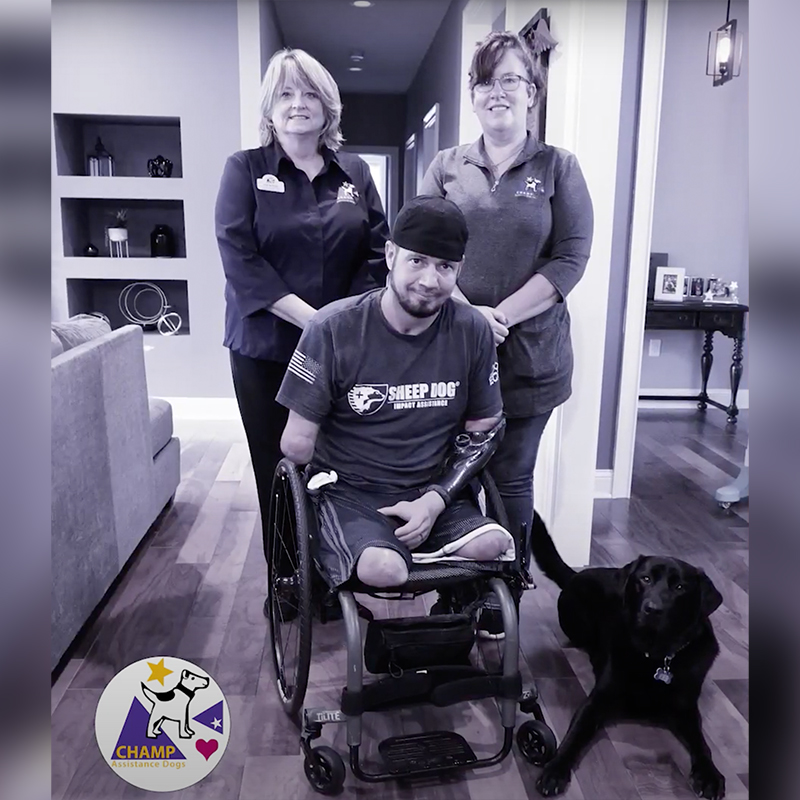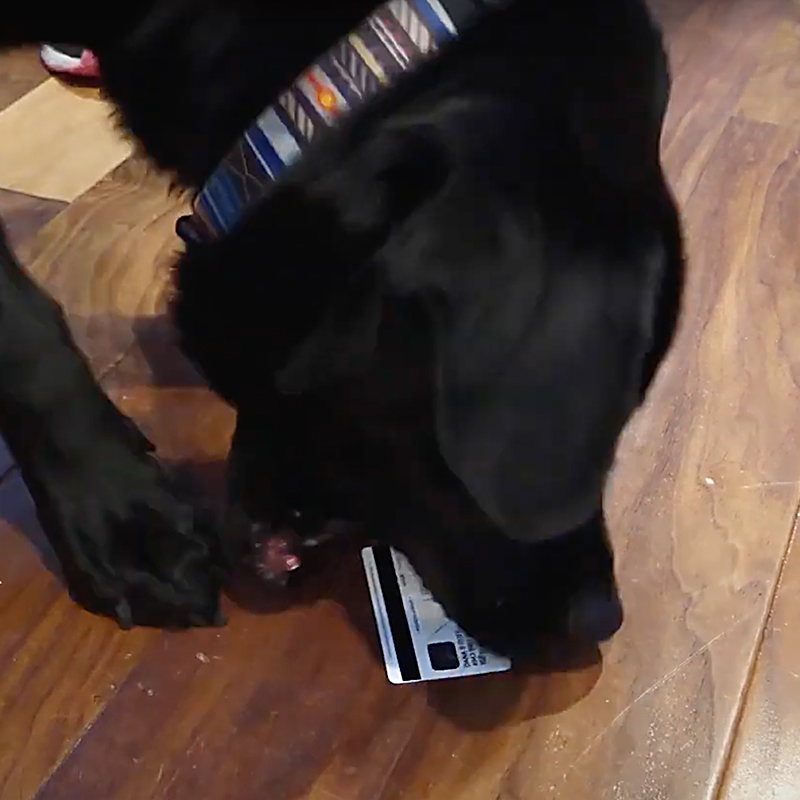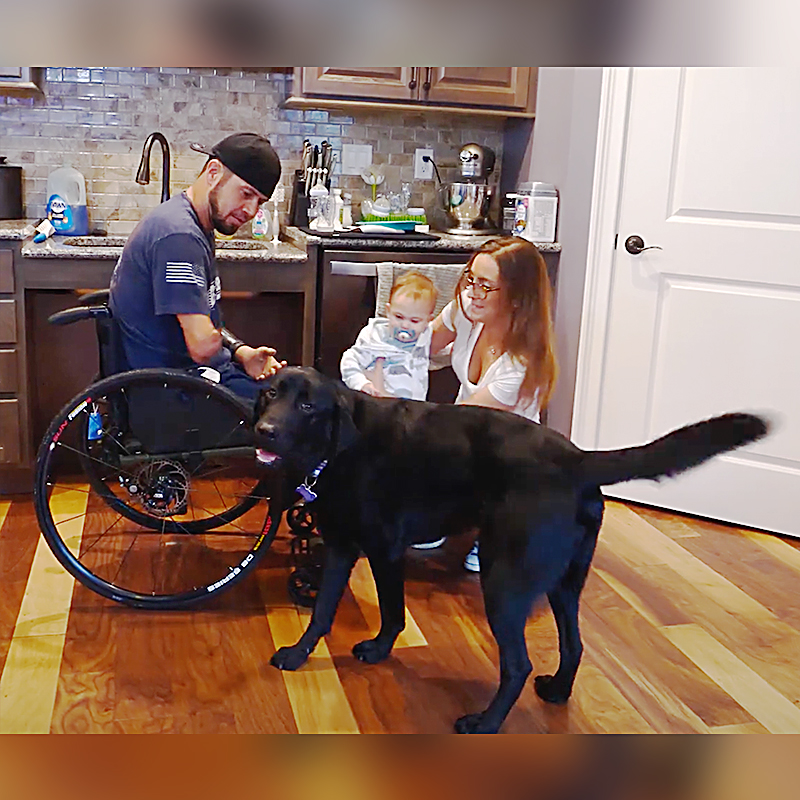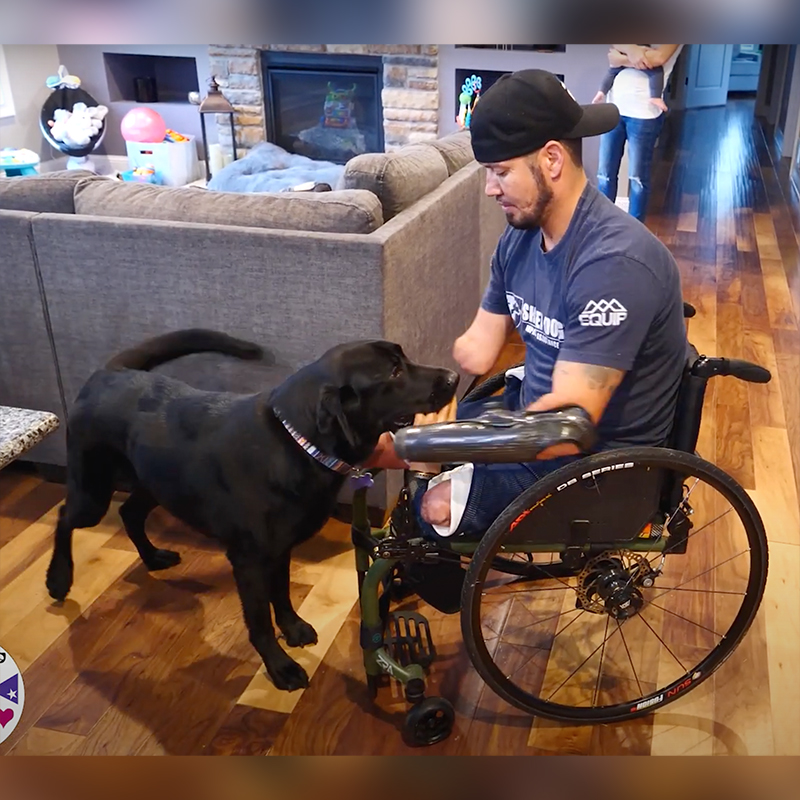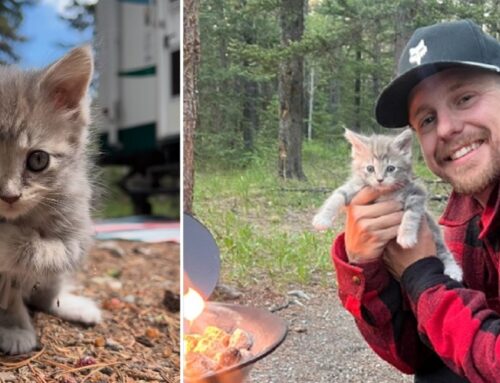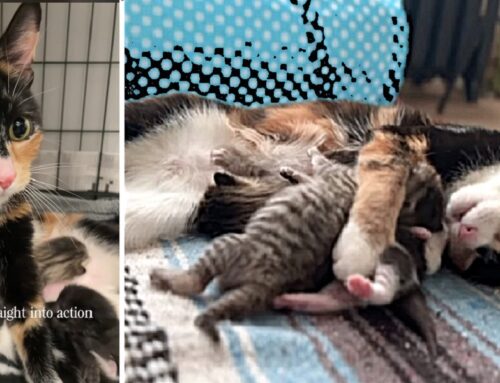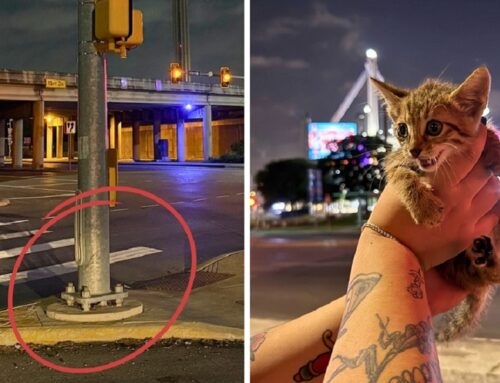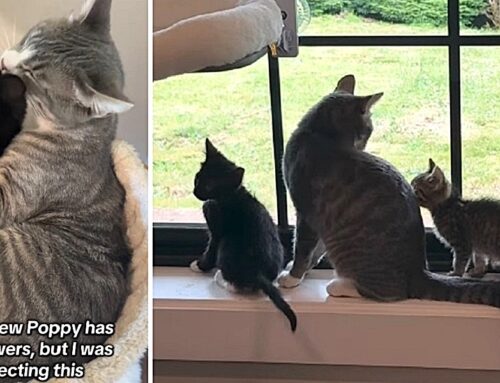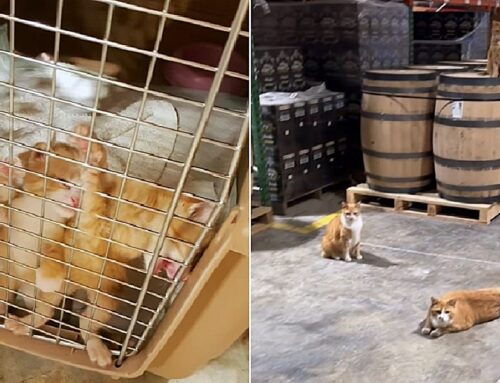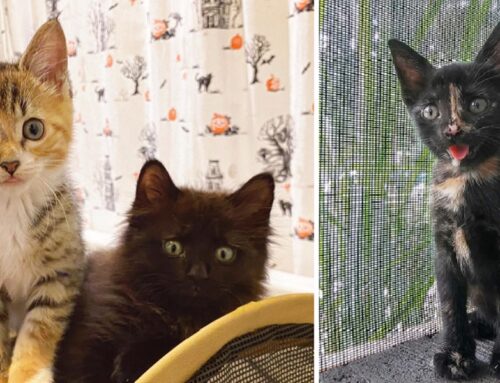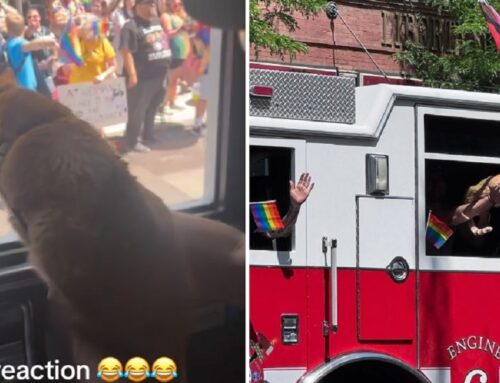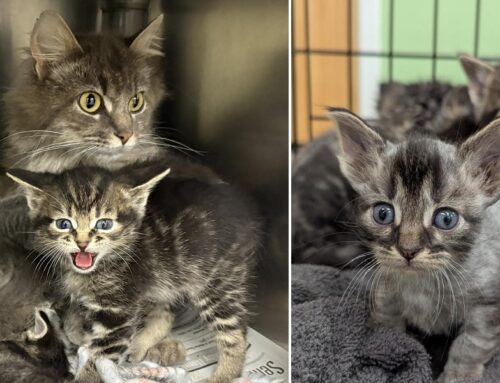Hugo, the service dog, found his forever home in St. Louis after rigorous two-year training with local CHAMP Assistance Dogs. The nonprofit places service dogs with astounding skills in homes to empower their humans to be more independent while providing companionship.
Hugo can close doors, carry objects, pick up items from the floor, call for help, and perform many important daily functions. While he’s at it, Hugo is a loyal best friend too! If the dogs need to learn new skills, CHAMP helps with custom training for each person.
Also, the dogs’ skills help professionals in settings such as healthcare facilities, courthouses, prisons, and children advocacy centers. For example, the dogs provide comfort for people testifying in court, such as kids who have been abused. With the dog by their side, they can be more confident to speak in a courthouse. How amazing is that?
Wherever they go, these dogs make a huge difference in peoples’ lives, and Hugo is doing just that.
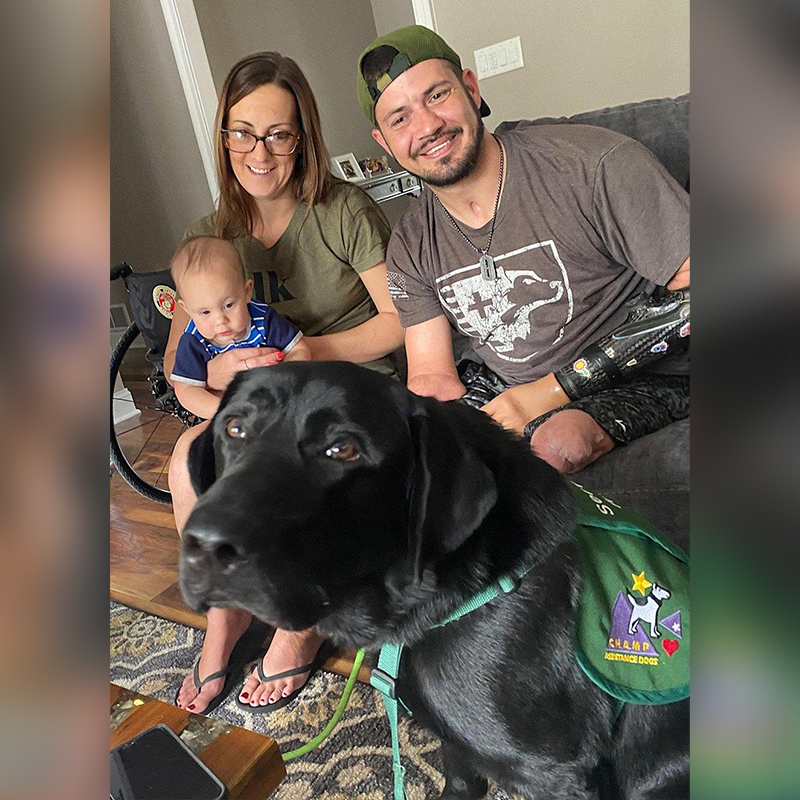
Image via Yahoo/Todd Nicely
Hugo and Veteran Todd Nicely
Happily, Hugo came home to serve Todd Nicely, a St. Louis war veteran and his family. In 2010, Nicely, a Marine Corps squad leader, stepped on an explosive device while crossing a bridge in Afghanistan. As the leader, he didn’t have to go first, but he chose to be out front to serve as a good example for his team.
“I didn’t want to put my guys through anything I wouldn’t do, so a lot of the time I was in the front,” he said.
Sadly, the explosion tore away parts of all his limbs. Astonishingly, he died three times as his heart stopped in the aftermath. However, he survived after being stabilized in the military hospital, reports KMOV4.
Following a year and a half of physical and occupational therapy in the hospital, he returned home. However, his struggles would continue for almost 12 years.
“Just learning to not have hands was the hardest thing,” he said. “You take for granted the small movements, like pinching your fingers to pick up a Chapstick on the floor, or a credit card. It’s very daunting sometimes the tasks you have to do in your everyday life but you learn to do it, struggle with it and be okay if you can’t do it sometimes.”
Image via Yahoo/Todd Nicely
Then, several years ago, a social worker through the VA brought up the idea of a service dog. So, the veteran decided to contact CHAMP.
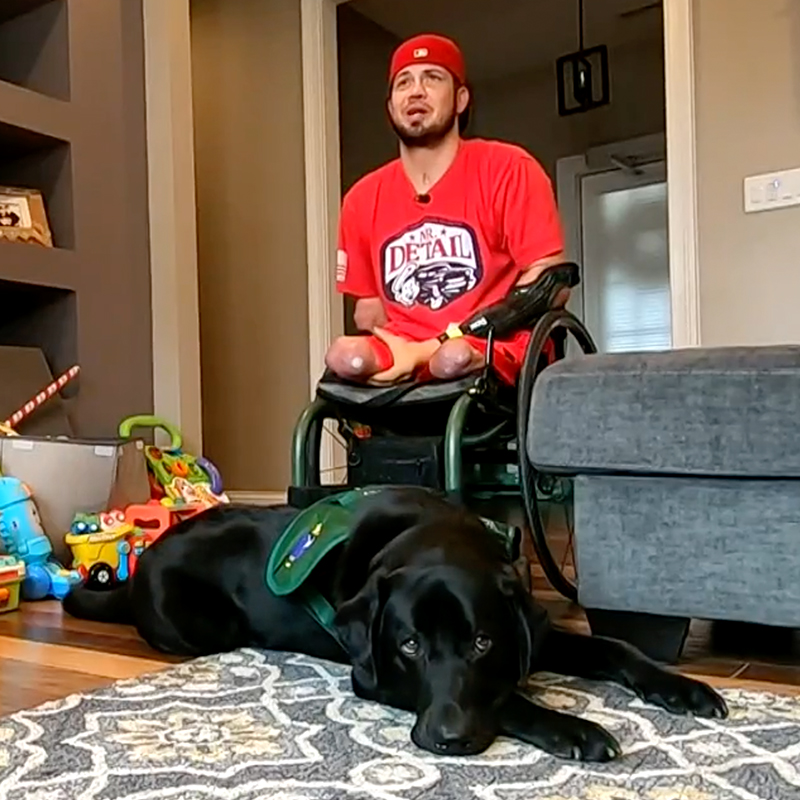
Image screenshot/KMOV4
Hugo and a ‘Blessing in Disguise’
Once Nicely decided to reach out, CHAMP began the process of training Hugo, a 3-year-old lab. In all, it takes around 2 years to prepare the dogs for their amazing mission.
“It takes about two years to fully train the dogs and get them to have a set of skills that we can then add onto to specifically help the person we’re placing them with,” Pam Budke said, executive director of CHAMP.
Images via YouTube/CHAMP Assistance Dogs
Now, if Nicely drops objects on the floor, including his prosthetic hand, the dog brings it to him. For all those years, picking up a credit card from the floor was virtually impossible. If an object like his battery pack fell, he’d have to get on the floor.
“Having him here to be able to pick up those things or pick up something I drop is a blessing in disguise,” Nicely said. “It makes my quality of life much better.”
Along with Hugo, the CHAMP trainers are there to help Nicely learn commands and improve Hugo’s skills to serve Nicely. Altogether, it may cost around $30K for CHAMP to train and place a service dog. However, thanks to donations, there is no cost to the veteran.
By reaching out, Nicely has a constant companion who can greatly improve the quality of life. It’s heartwarming!
Asking for Help Makes You Stronger
Nicely says he joined the Marines for the challenge to see how he could handle the pressure. After working in construction, he decided it was time to follow his calling.
“I joined the Marine Corps because, at the age of 16, I saw the movie ‘Saving Private Ryan,’ and I had always wanted to join the military. He heard they were “the toughest” and wanted to see how he would handle “that kind of pressure,” he said.
After a tour in Iraq, he went to Afghanistan almost a year later. Today, he hopes that the story of Hugo will help other veterans find the strength to ask for assistance when they need help.
“You are supposed to be this tough military man. Now, all of a sudden, you’re asking for help. It’s like, ‘am I weak?’ ‘No,'” Nicely said.
As he’s learned, it takes strength to ask for help, and he’s once more leading the way for others.
“It doesn’t make you weak. It actually makes you stronger to ask for help,” he added.
See Todd Nicely discuss Hugo in the video from CHAMP Assistance Dogs below:


